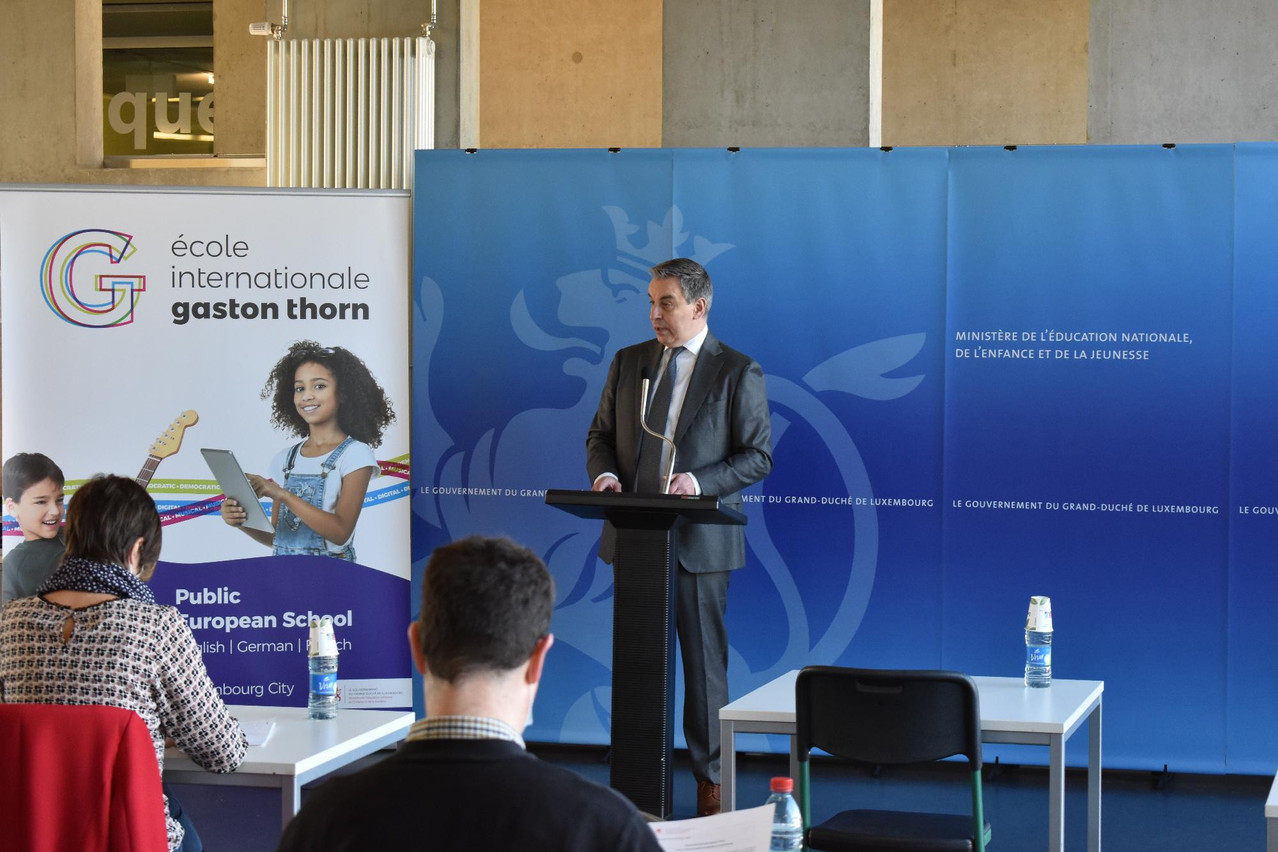The new school, Gaston Thorn, will implement the government's legislative curriculum agreed for 2018-2023 while 300 pupils are expected to start in September of this year. The combined number of students in the other five European schools is 3,100.
The first public international school opened in Differdange in 2016 and according to education minister Claude Meisch (DP) it was “accepted by the pupils, parents but also by a lot of teachers and it really took its place in the Luxembourg education landscape.” While the schools in Differdange and Esch are expected to have their first graduates this year.
“It is a must to have one school like that in Luxembourg city when we see how international and cosmopolitan the population of the city is,” said Meisch.
Meisch made clear his admiration for the European model, saying that even in local Luxembourgish school there are “many different cultures and languages present, and that’s why the European model is so interesting for us because it’s based on multilingualism.”
Students enrolled in European schools in Luxembourg can choose which language they want to be taught in which gives them flexibility in terms of the foreign languages they want to learn. “You can create your own language portfolio,” said Meisch.
Pupils in the Gaston Thorn school will be able to pick from English, French or German. Luxembourgish will be taught twice a week until the third year of secondary school while foreign languages such as Italian and Portuguese will also be part of the classes that students can choose.
Afterschool programmes will also be available, with Luxembourg City taking part in a project aiming to promote multiculturalism and provide a safe space for students after educational hours.
With no inscription fees the public school will be free and open for those living in the city and the surrounding area. While the Meisch highlighted the importance, of offering the same opportunity in public schools as those available in private schools. “That was not the case some years ago,” he said.
The success of public international schools has led to the government launching an evaluation as to why these schools are so much more popular than others, with the aim of identifying the positives and transposing them in other Luxembourg schools.
